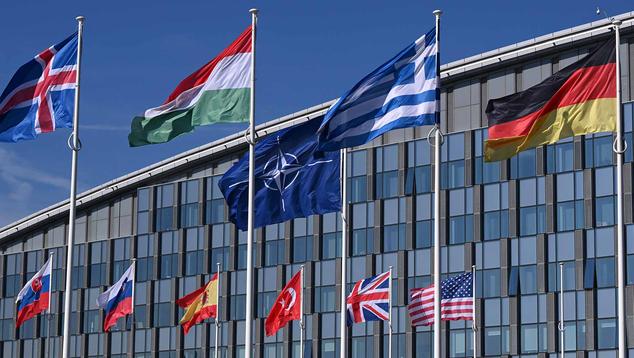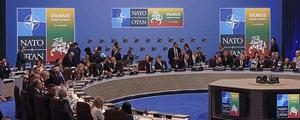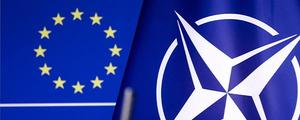WASHINGTON, D.C. -- A 47% plurality of Americans want to see the United States keep its current commitment to NATO, with 20% feeling support for the alliance should increase. Meanwhile, 16% think the U.S. should decrease its NATO commitment, and 12% would prefer that the U.S. withdraw from NATO entirely.
Americans' overall support for NATO remains unchanged from the prior reading two years ago just before Russia’s broader-scale invasion of Ukraine and the additions of Finland and Sweden to the alliance. Compared to other similar trends from the 1980s and 1990s, major changes in support for the alliance have occurred among those wanting increased support and those wanting the U.S. to exit the alliance entirely.
The latest findings are from Gallup’s World Affairs poll conducted Feb. 1-20, 2024. During the polling period, Donald Trump, who has been critical of NATO in the past, indicated that if he is elected president, he would not defend NATO allies against Russia if they fail to contribute enough money to the alliance. Opinions on NATO were similar in interviews collected before and after Trump’s comments.
Republicans Least Supportive of NATO
A 53% majority of Democrats and pluralities of Republicans (46%) and independents (43%) support maintaining the United States’ commitment to NATO. Another 27% of Democrats and 24% of independents want to see the U.S. increase its commitment, but only 7% of Republicans share that view. Meanwhile, 26% of Republicans say the U.S. should decrease its support to the alliance, while 14% of independents and 9% of Democrats agree. One in six Republicans and a similar proportion of independents want the U.S. to withdraw from NATO.
Biggest Changes From 2022 to 2024:
- Among Republicans, the biggest change is an increase in the percentage who want to keep the commitment as it is now (a 9-percentage-point increase from 37% to 46%) and a decrease from 22% to 16% who want to withdraw entirely.
- Among independents, the biggest change is a decrease in the percentage who want to keep the commitment as it is now (an 8-point decrease from 51% to 43%) and an increase from 16% to 24% to increase the commitment.
- Among Democrats, the changes are minimal, but there is a slight decrease in the percentage who want to increase the commitment (a 1-point decrease) and a slight increase in those who want to decrease the commitment (a 2-point increase).
Majority Continues to Disapprove of United Nations’ Job
Americans’ views of another international organization, the United Nations, remain largely negative as a steady 58% say it is doing a “poor job” trying to solve the problems it faces, while 33% think it is doing a good job. Since 2003, around the start of the Iraq War, more Americans have rated the U.N. as doing a poor rather than good job.
While party identification influences views of both NATO and the U.N., race and opinions of their country’s position in the world are important dimensions to views of the U.N. in particular. Specifically, white respondents, 62%, are significantly more likely to say the U.N. is doing a poor job than people of color, 49%. Also, those who are dissatisfied with the position of the U.S. in the world (72%) are far more likely than those satisfied (32%) to say the U.N. is doing a poor job.
Bottom Line
During his presidency, Trump criticized NATO and pressured allies to fulfill their financial commitments to the alliance. He has made similar statements recently, reigniting discussions about the United States’ commitment to NATO.
But since Russia’s invasion of Ukraine and the addition of two new members to the alliance, Americans’ views about the appropriate level of the U.S. commitment to NATO have remained mostly unchanged. While a majority want to either see current commitments kept consistent or increased, Republicans are more likely than Democrats to want a decrease in current levels of support or complete withdrawal from the alliance. Importantly, a slim majority of Republicans still favor increasing or keeping the U.S. commitment to NATO.
The United Nations’ job rating remains weak, influenced by party identification, white Americans more likely than Americans of color to say it's doing a poor job, and those satisfied with the position of the U.S. in the world more likely to say it's doing a good job tackling its mission.
To stay up to date with the latest Gallup News insights and updates, follow us on X.
Learn more about how the Gallup Poll Social Series works.
View complete question responses and trends (PDF download).




